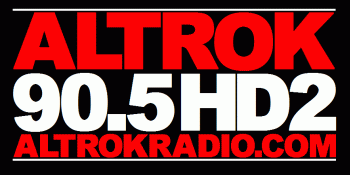Understanding Radio In One Minute Or Less: Ready...Set....
You've heard this on AltrokRadio.com before, but as a final gravestone on G-Rock Radio's final repose, it bears repeating...
To understand radio, one must ask "what is Radio's product? This is a free market, right? So in this market, what do they sell?"
It's not music - they don't make money from that. (It's illegal, in fact - at least unless you say that's what you're doing, and who wants to listen to that?)
But if they're playing the right music to the right audience, they make money because that audience tells the ratings services they're listening, and advertisers pay to be put in front of that audience...
That's right. Radio's customers are its advertisers. Their product is the attention of their listeners. The customer, by the way, is always right, but the only time the listener is right is when they can prove that they are listening.
And once you understand that, everything else falls into place - G-Rock Radio's demise, WCBS's disappearance (and reappearance), and just about every brain-dead move the powers that be in radio and television have ever made.
That said, if a station can, for a low cost, expand listenership to a group of people they'd normally have no business attracting, it's in their best interest to do it.
(Helloooo, HD2.)
To understand radio, one must ask "what is Radio's product? This is a free market, right? So in this market, what do they sell?"
It's not music - they don't make money from that. (It's illegal, in fact - at least unless you say that's what you're doing, and who wants to listen to that?)
But if they're playing the right music to the right audience, they make money because that audience tells the ratings services they're listening, and advertisers pay to be put in front of that audience...
That's right. Radio's customers are its advertisers. Their product is the attention of their listeners. The customer, by the way, is always right, but the only time the listener is right is when they can prove that they are listening.
And once you understand that, everything else falls into place - G-Rock Radio's demise, WCBS's disappearance (and reappearance), and just about every brain-dead move the powers that be in radio and television have ever made.
That said, if a station can, for a low cost, expand listenership to a group of people they'd normally have no business attracting, it's in their best interest to do it.
(Helloooo, HD2.)



0 Comments:
Post a Comment
Links to this post:
Create a Link
<< Home